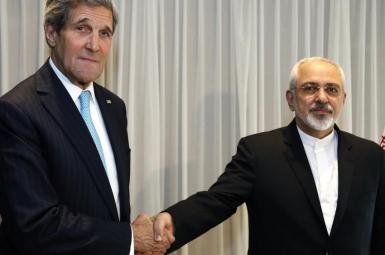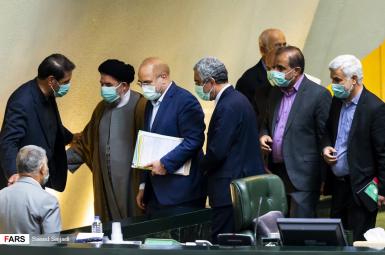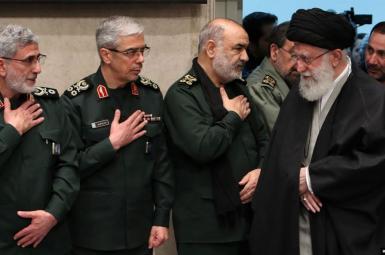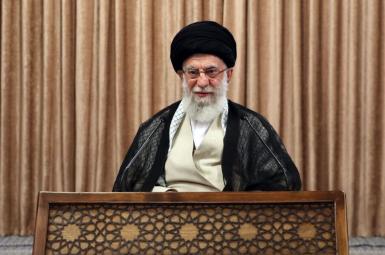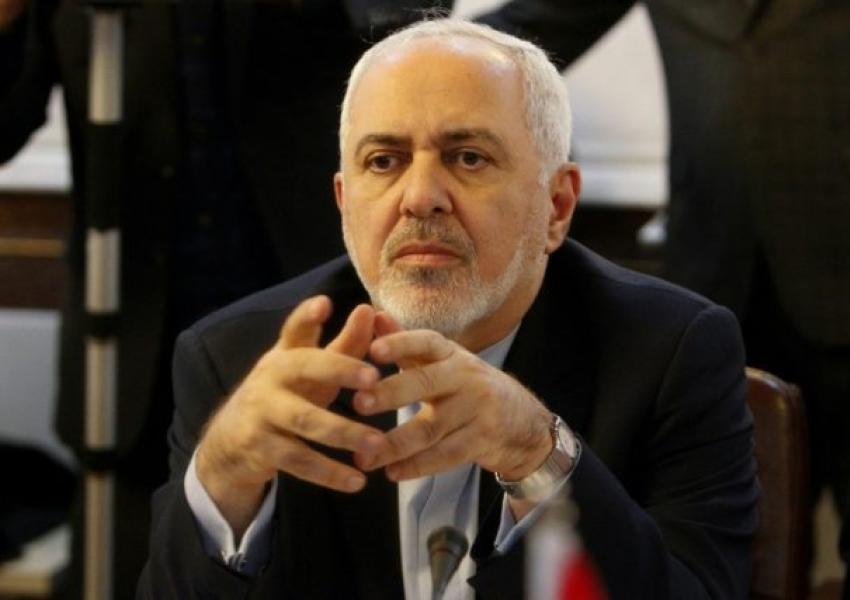
Iran Guards Intelligence Joins Probe Into Zarif Tape
Spokesman of Iran's Judiciary disclosed Tuesday that the intelligence organization of the Revolutionary Guards (IRGC) was involved in the probe into the leak of the audio tape of an interview with Foreign Minister Mohammad Javad Zarif.
At his weekly press conference on Tuesday, Gholam-Hossein Esmaili said investigation teams from the judiciary, intelligence ministry and the Revolutionary Guards' intelligence organization had been formed to investigate the leak. According to Esmaili, around 20 people had been summoned so far and a “big number” of those involved in making or looking after the tape had been banned from leaving the country. "Some results have been achieved but investigations will continue,” he said.
In the three-hour audio file, part of a seven-hour interview organized by the Center for Strategic Studies (CSS), Zarif expressed frustration with the Revolutionary Guards, particularly its late Qods Force commander Qasem Soleimani and his dealings with Moscow. The audio file had been circulating in Iranian political circles for a few days before Iran International TV acquired and published it in a ‘room’ of the application Clubhouse on April 24.
Government officials have insisted said the contents of the interview − one in a series of an oral history project carried out by the CSS – were intended for release in an edited form once the Rouhani administration left office in early August.
On Tuesday lawmakers, some of whom have accused Zarif of "sedition," voted to set up a parliamentary investigation into the CSS and into the foreign ministry's role in protecting "classified information.”
Abolfazl Amouei, spokesman of the parliament's National Security and Foreign Policy Committee, in presenting the motion to parliament on Tuesday said the aim was to clarify how classified information had reached "hostile [television] channels abroad" and thereby produced a "national security threat." Amouei insisted that President Hassan Rouhani would be held responsible for the actions of his ministers.
Four days after the tape was published by Iran International, Rouhani dismissed Hesamoddin Ashena, the head of CSS, and ordered the intelligence ministry to investigate how the audio file had been "stolen." Defending Zarif, Rouhani charged that the leak resulted from the frustration of critics of Iran’s efforts to revive its 2015 nuclear deal with world powers in current talks in Vienna.
Parliament on Sunday [May 9] discussed the leaked audio file in a closed session without Zarif, with the foreign minister meeting with members of the National Security and Foreign Policy Committee later that day. Amouei told ISNA news agency that Zarif had faced criticism from the committee’s 12 members, with the foreign minister noting that Supreme Leader Ali Khamenei's May 2 speech had been the "final word" on the matter.
In his speech Khamenei stressed that foreign policy was made collectively – a point also made by Rouhani – and that the role of the foreign ministry was to carry it out. Khamenei called Zarif's criticism of Soleimani, who became widely known in Iran for his role organizing resistance to the Islamic State group (Isis) in Iraq, "regrettable and surprising.”

